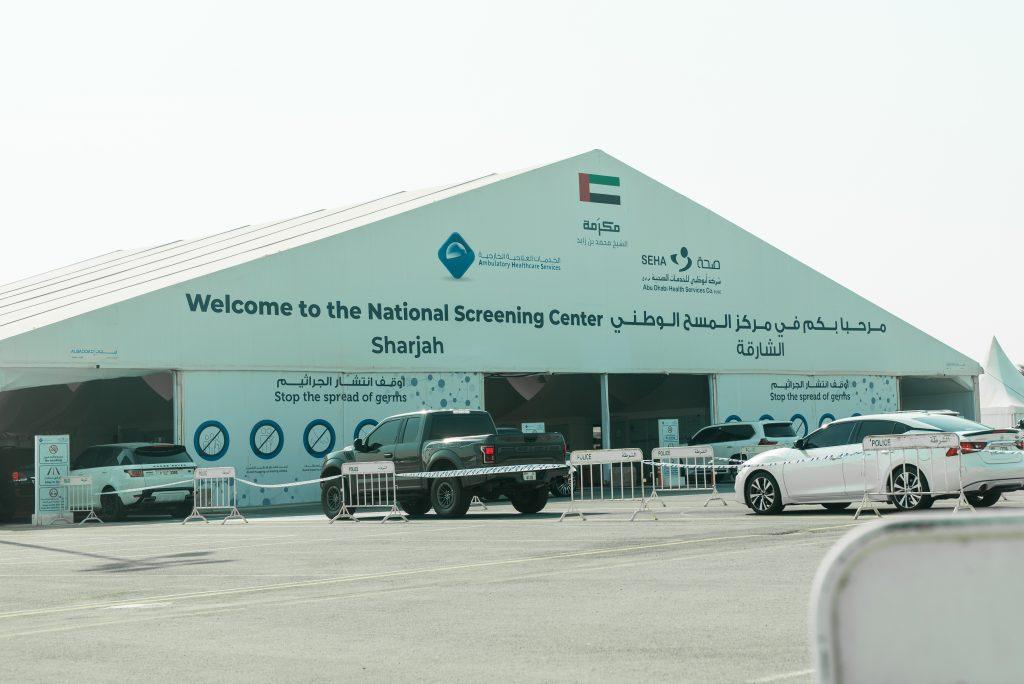
Last year, the United Arab Emirates (UAE), with its tiny 83,600Km2 of land and a little under 10 million residents, ranked 56th out of 195 countries on the (now somewhat controversial) John’s Hopkins Global Health Security index. The country was labeled as as ‘more prepared’ in the face of disaster – in between ‘least prepared’ and ‘most prepared’. The overall global score was far from desirable, and when COVID-19 exploded into existence just one month later, the report’s predictions rang loud and true. Well, at least for the UAE.
As the country is essentially a crossroads for the world’s air traffic in all directions, it was incredibly vulnerable to picking up and transmitting the virus within the country at speed. Indeed, it was the first country to report positive cases in the Middle East when a family of Chinese tourists arriving in Dubai from Wuhan tested positive for the virus in January 2020.
In an effort to balance political priorities and health concerns, the UAE did not immediately stop all traffic from China. The government set up screening and isolation points at its airports, mandated 14-day self-quarantine, and later the wearing of GPS tracking bracelets for anyone arriving from abroad. The authorities also set up hotlines and helpdesks to answer the public’s concerns.
Involving the private sector in the response
But as the number of cases grew, and it became evident that the battle against COVID-19 was not to be won single-handedly, the UAE shifted strategies. The government sought to make use of all possible connections, entities, and institutions, including seeking what the private sector could provide.
They established partnerships to include strong collaborations in the logistics and supply chain sector to maintain a supply of necessities locally and internationally. This helped to maintain some sense of normalcy on the ground as supermarket shelves remained well-stocked. The increased demand for hygiene supplies was met, and the continuous flow of medications, testing supplies, and humanitarian aid in all directions through the International Humanitarian City, ensured.
They also set up testing stations in private hospitals to widen the net and provide easier access to testing and treatment – one of the cornerstones in the fight against COVID-19 and which provides a window onto the pandemic and how it is spreading.
And probably most importantly of all, they collaborated to develop the first population-scale laboratory outside mainland China that tested for COVID-19, briefly ranking the UAE first in the world with respect to the number of tests done. The same company leading the lab development, G42, also leads the latest vaccine clinical trials in partnership with international bodies.
Partnerships with the private sector clearly play a critical role in harnessing companies’ skills, management capability and technology during crises. Many countries have managed to harness the potential of the private sector into their COVID-19 response, enabling them to increase testing capacity, treatment options, and the number of health workers. The countries with the most success in doing so, display a vital component: an existing policy framework for private health sector engagement, including robust regulatory frameworks and financing mechanisms.
A regulatory framework for involving the private sector ensures efficiency and optimization of resources in line with public policy objectives and provides protection for the private sector as well, enabling it to function to its optimum potential. It is also the government’s obligation that the private sector is held accountable to the same standards as the public sector, and subjected to independent review and oversight – an issue that is particularly important in the COVID-19 era.
Furthermore, maintaining integrity and transparency through ensuring equal acess to treatment, the publication of research results, open and accessible contracting procurement processes, and clear codes of conduct are all necessary to protect the public.
Large-scale threats such as COVID-19 require a systemic and leadership approach, and countries need to be prepared before disaster strikes, keeping the the 4 Rs in mind: ‘readiness’, ‘response’, and ‘resilience and recovery’ .
While all attention is currently focused on tackling the global pandemic, we should not be distracted from the broader picture. COVID-19 is not the first global health crisis, nor will it be the last. In fact, most probably, crises like this will happen more frequently from now on. Our world is smaller than ever, and as nature and environment are rapidly changing, the emergence of new diseases is a certainty. As we know now, more than ever, that social, political and environmental forces impact our health, we must ‘reimagine health systems for better social justice’.
Intersectoral collaboration will be key
COVID-19 has made it clear that the way we are and have been doing things is neither successful nor sustainable, and that we thus have to change tack. The pandemic also taught us another lesson: the collective realization that we cannot work in isolation.
With ten years to go to achieve the Sustainable Development Goal to “ensure healthy lives and promote wellbeing for all at all ages” (SDG 3), now is the time to work together, not apart. We must learn, support, and collaborate to change the focus of health systems to address public health and the broader ecosystem influencing health.
COVID-19 has shown how intricately our fates are connected. Governments must go beyond short-termism and build relationships and partnerships to prepare for the future in crises. More than ever, intersectoral collaboration has proven to be a necessity that lives depend on, rather than a luxury that can be done without.
We have much to learn from this experience: what worked and what didn’t, who stood by us and who didn’t, and most importantly, that our greatest strength in the face of calamity lies in our transparency, compassion, and unity.